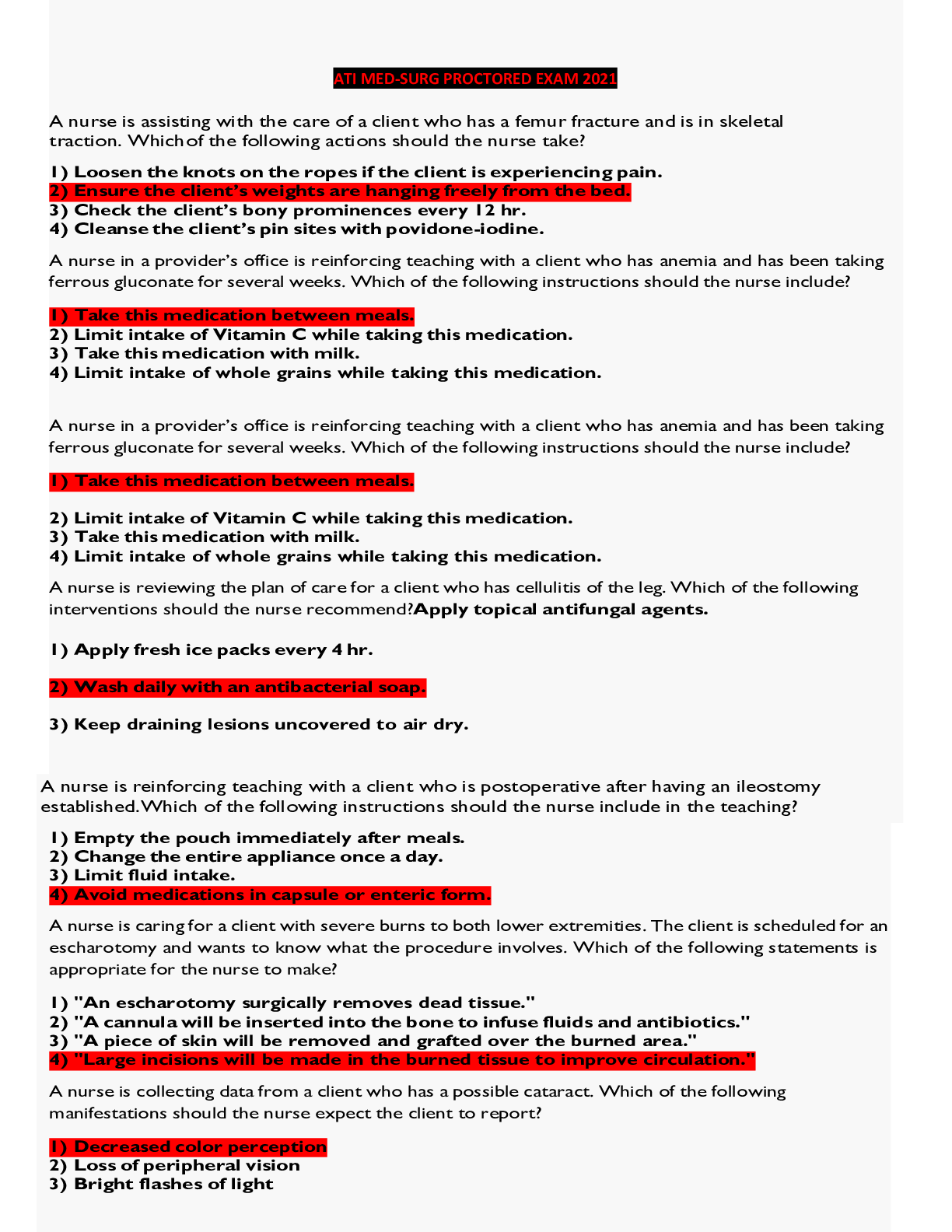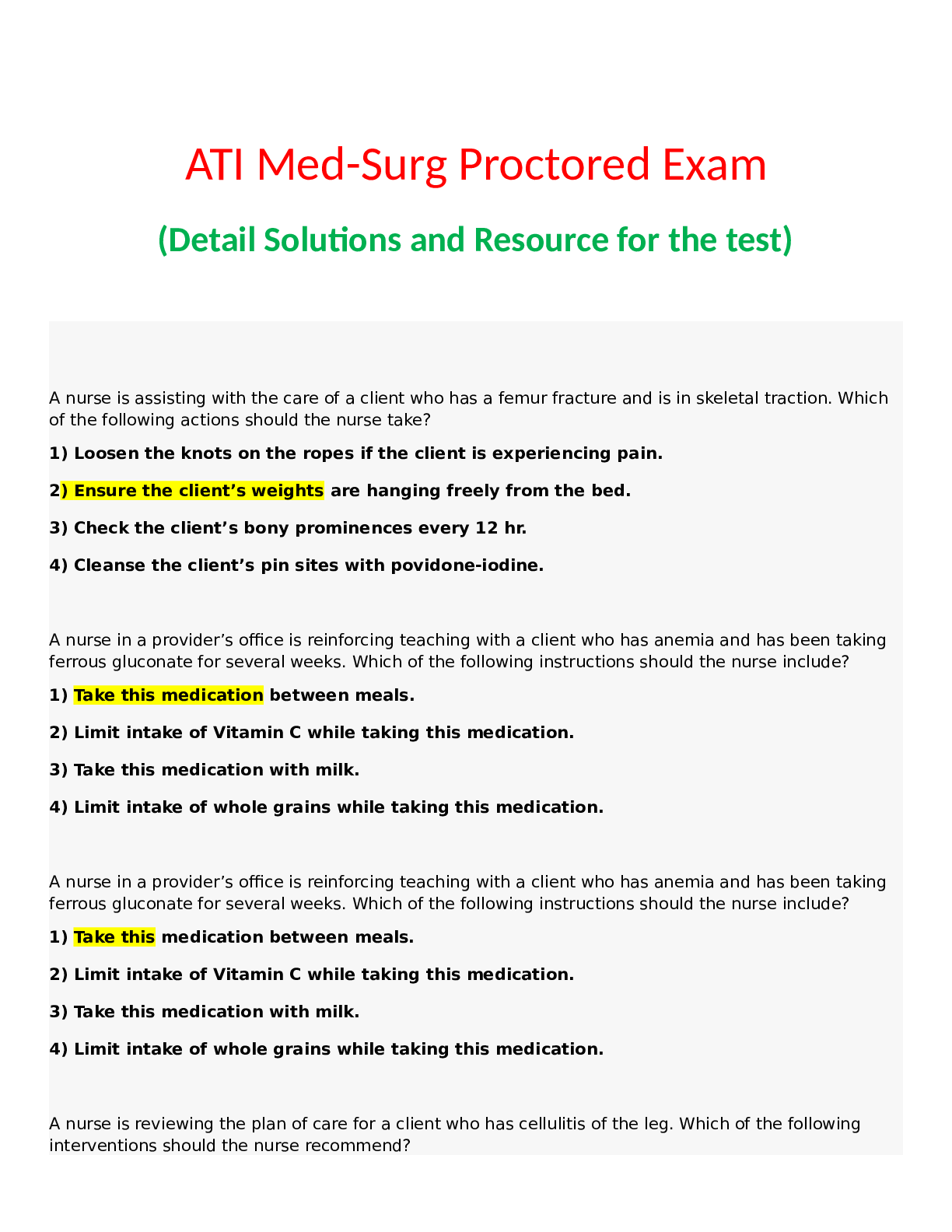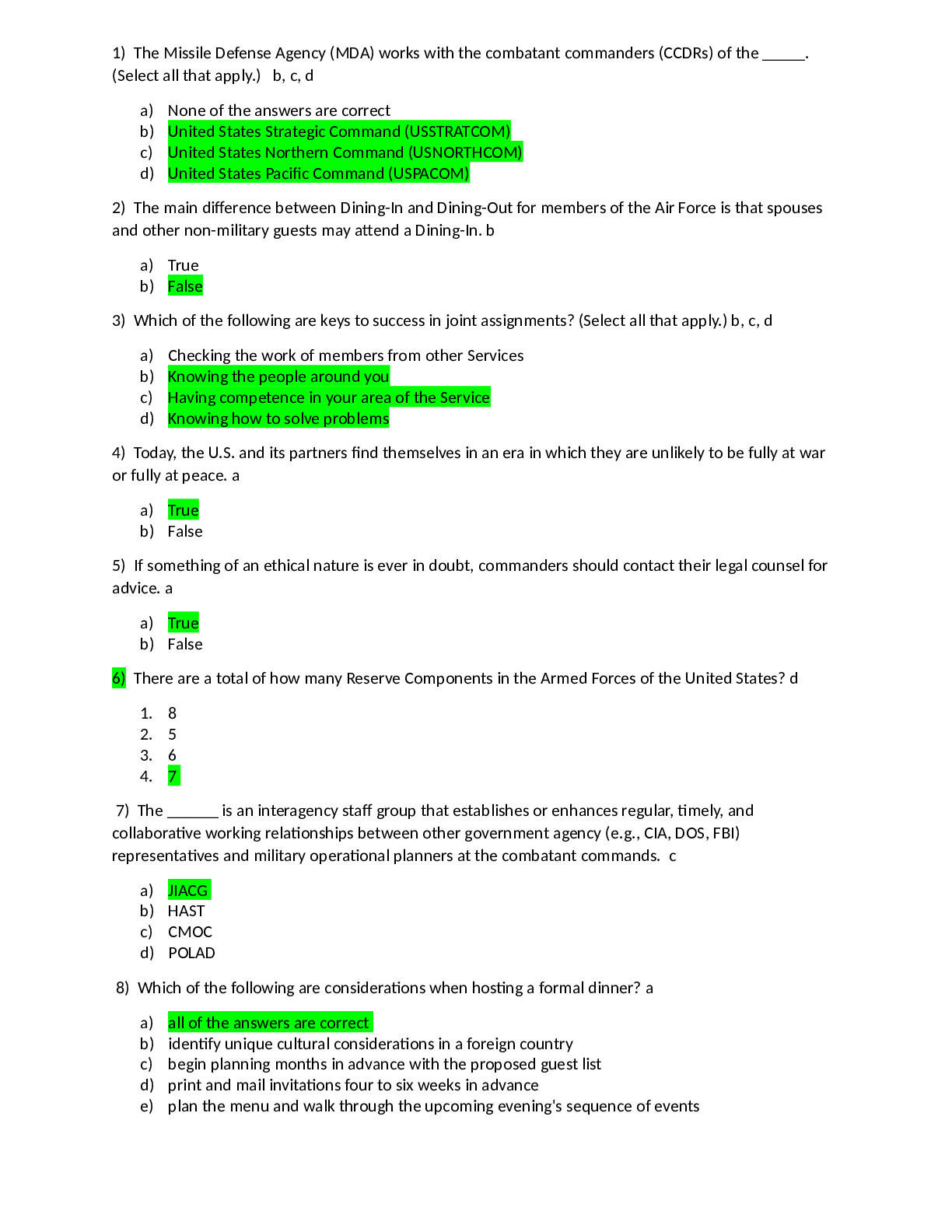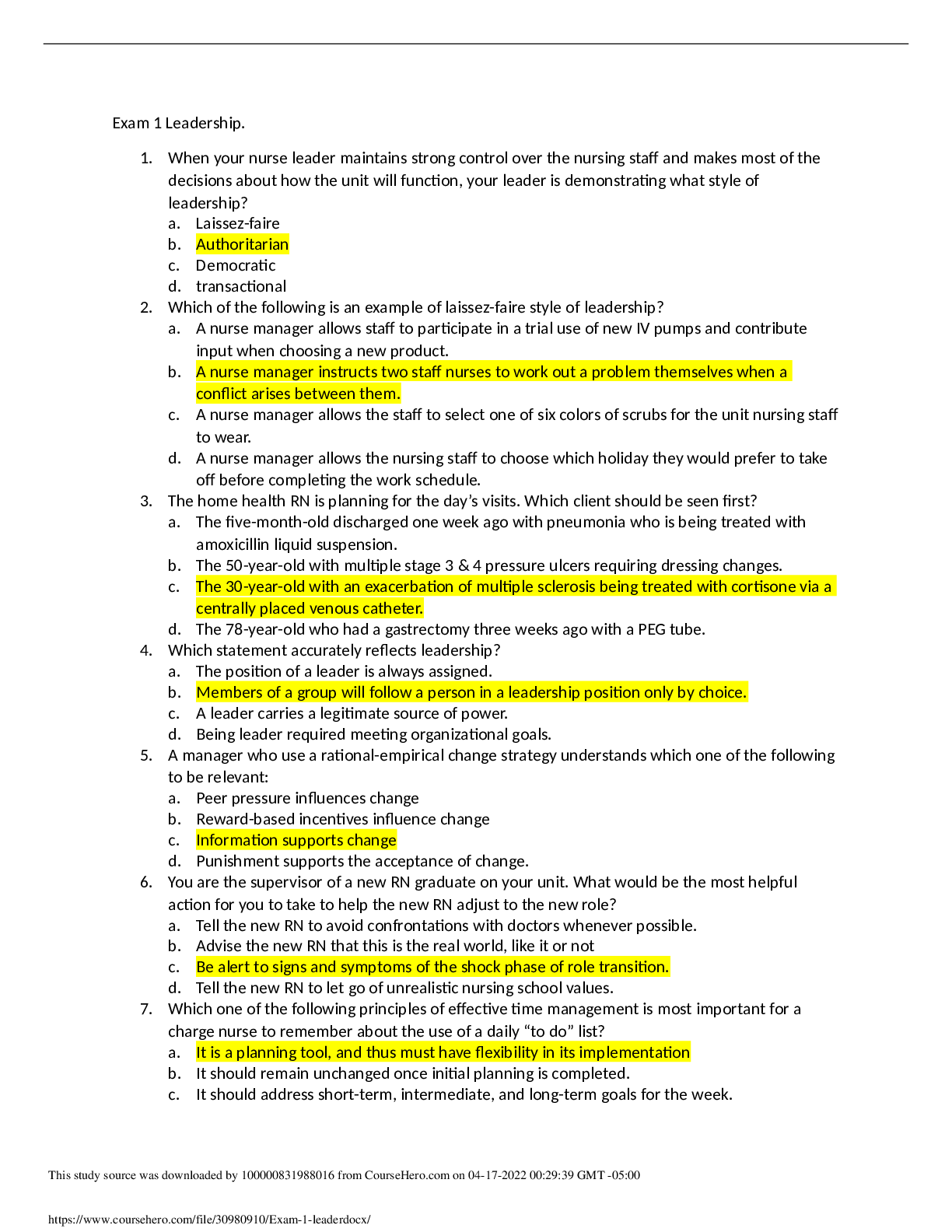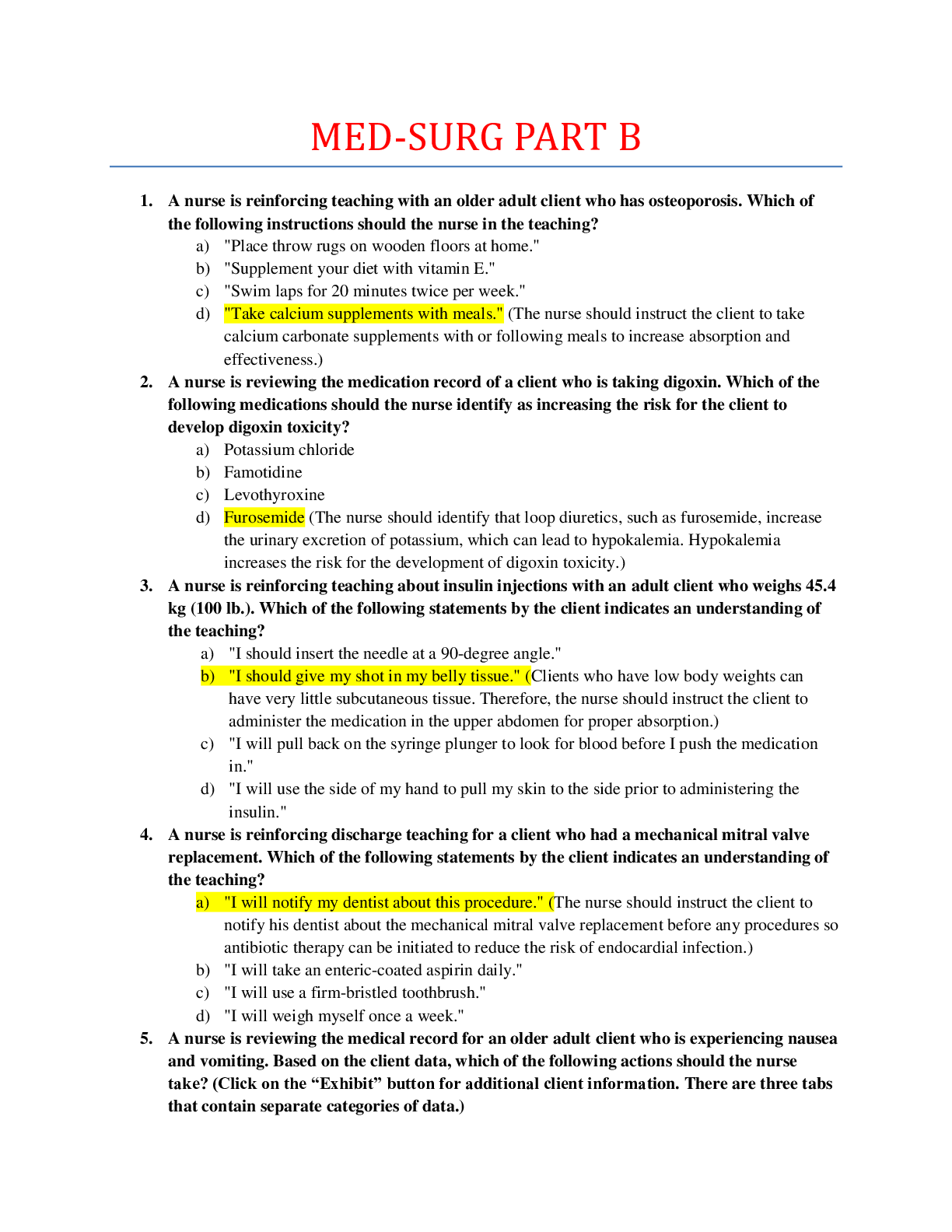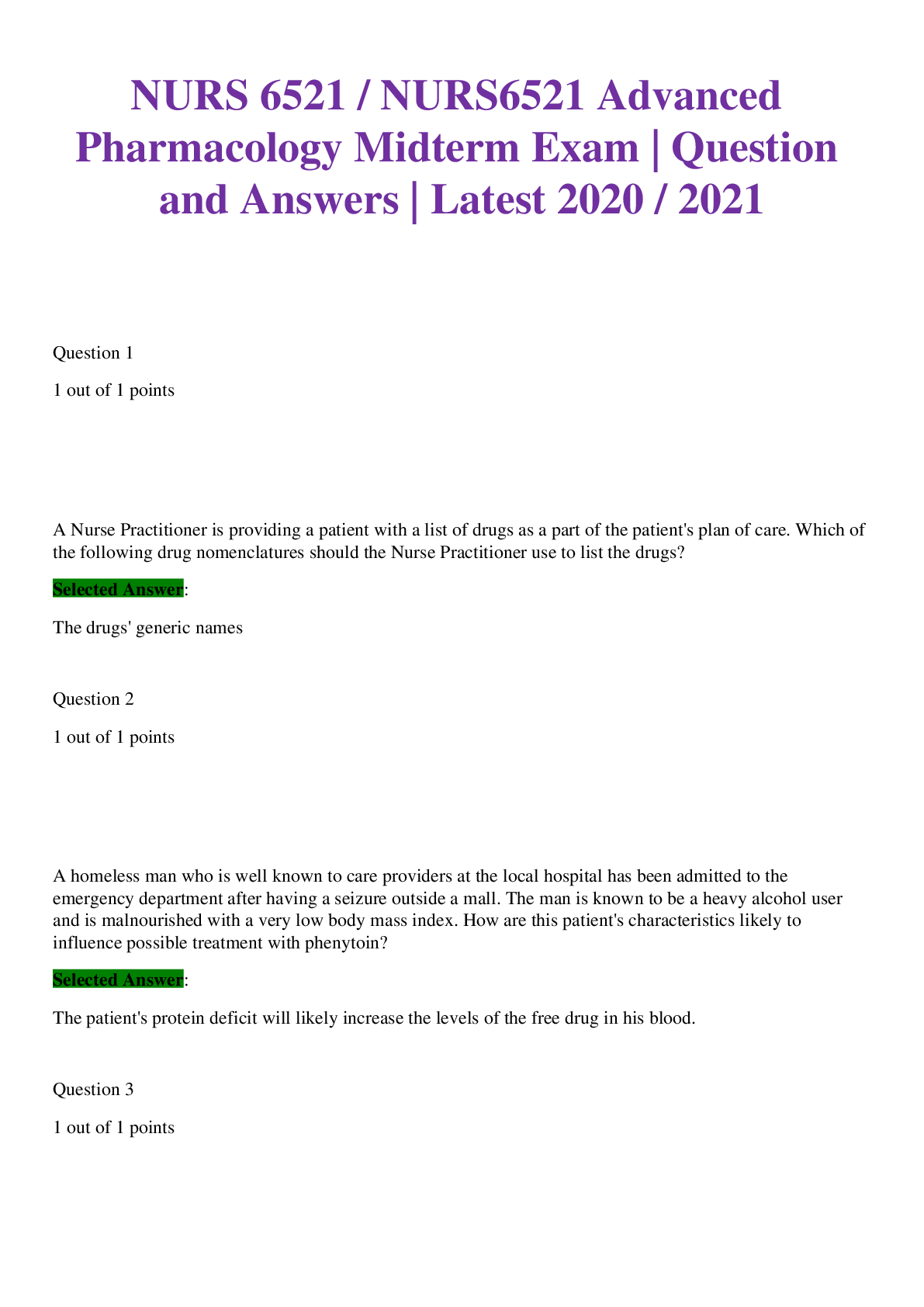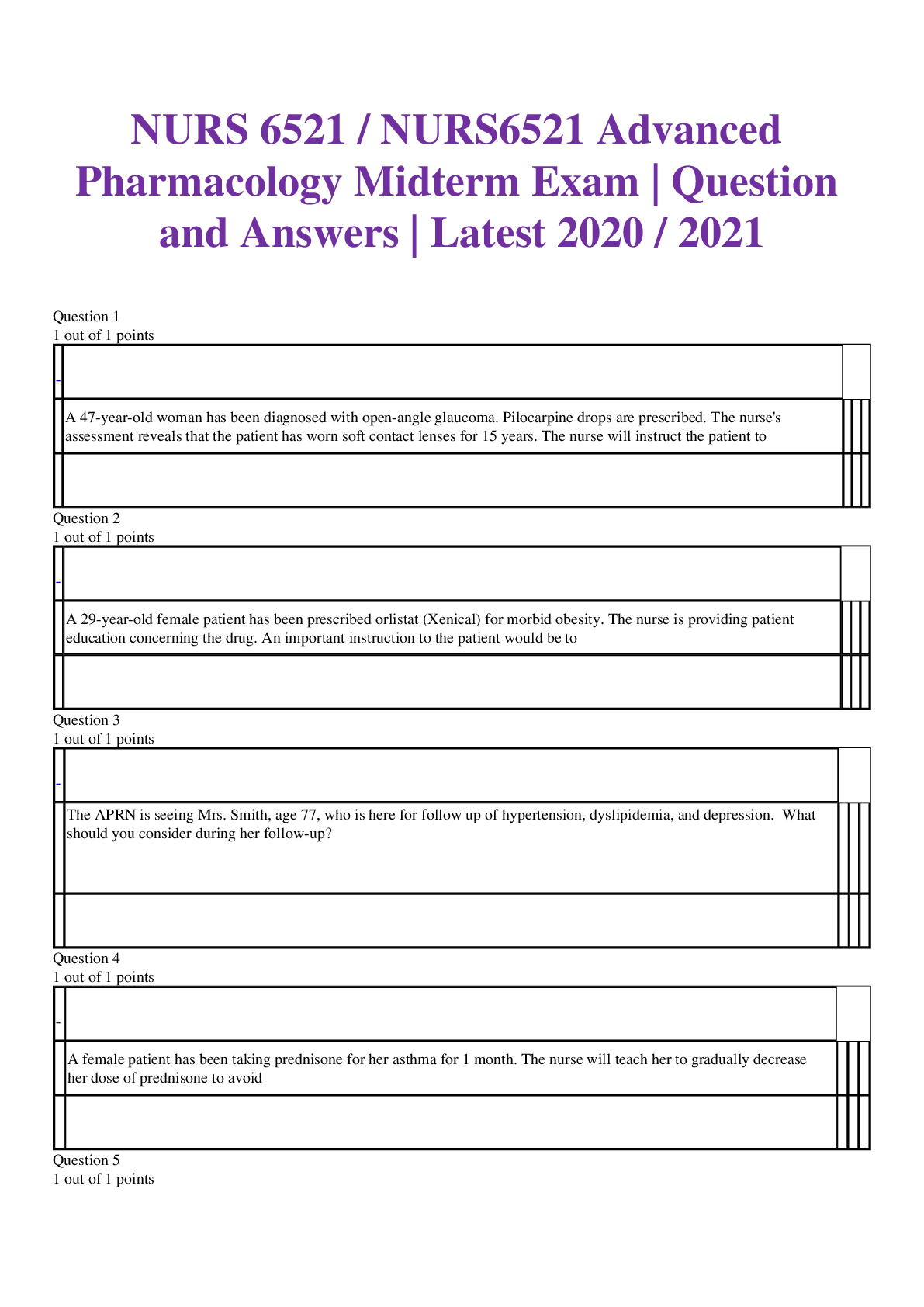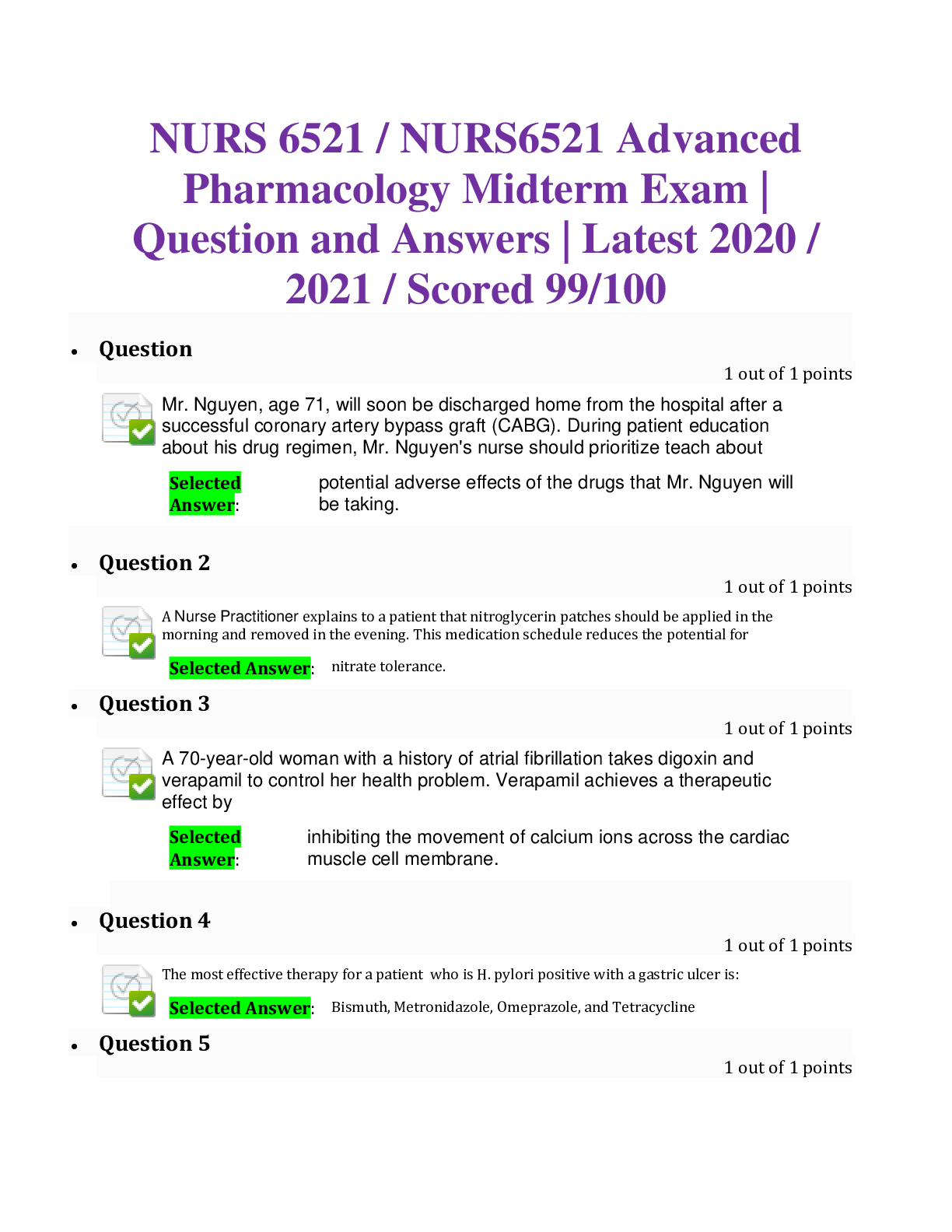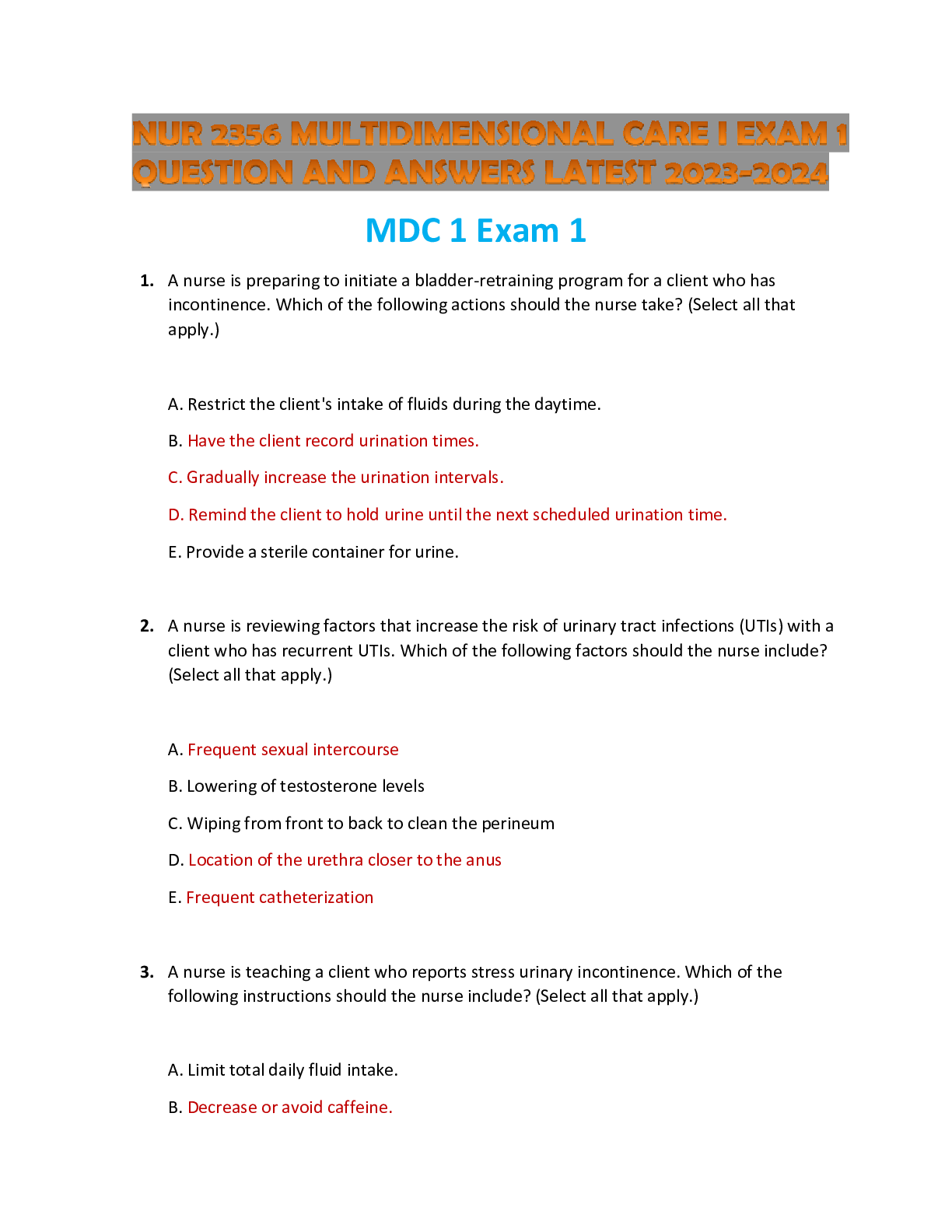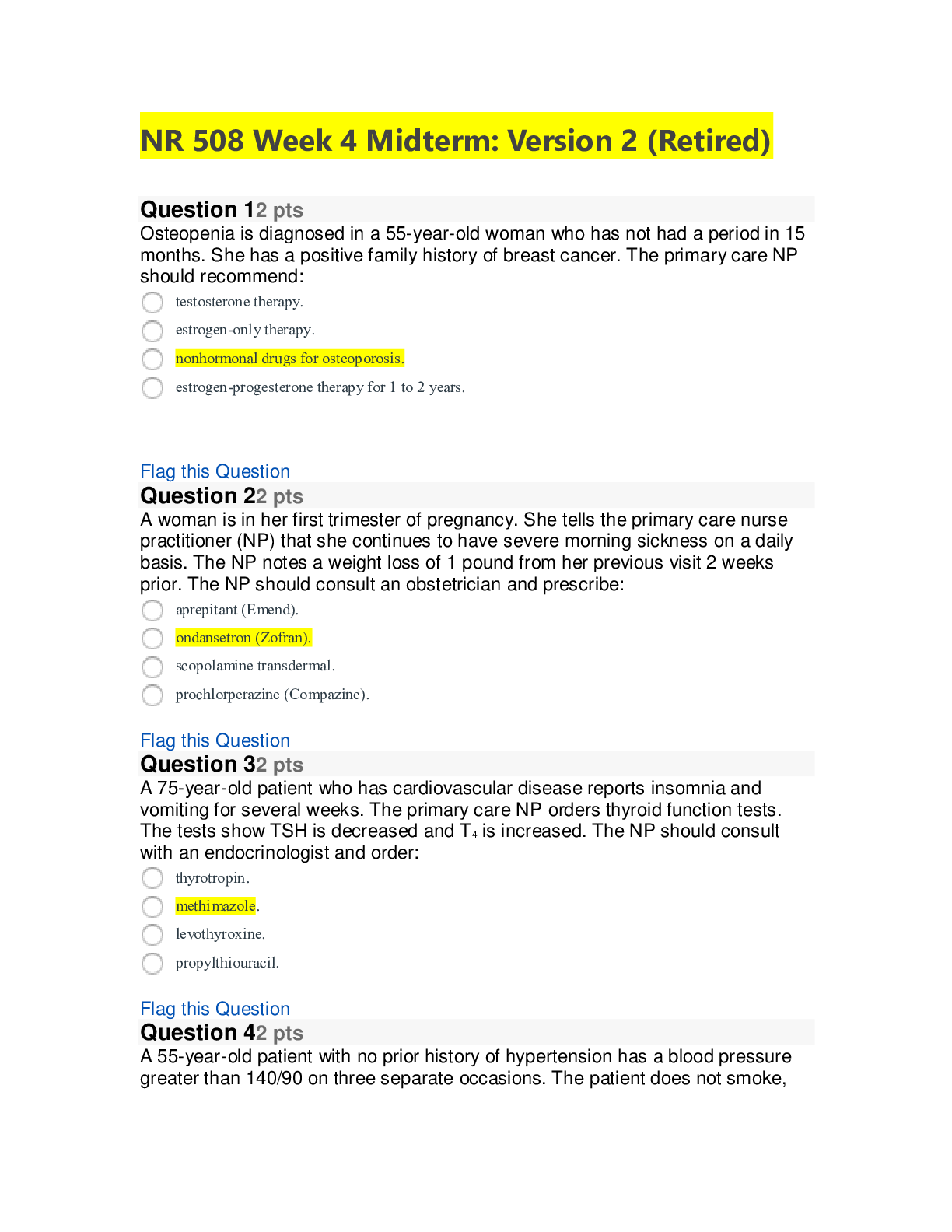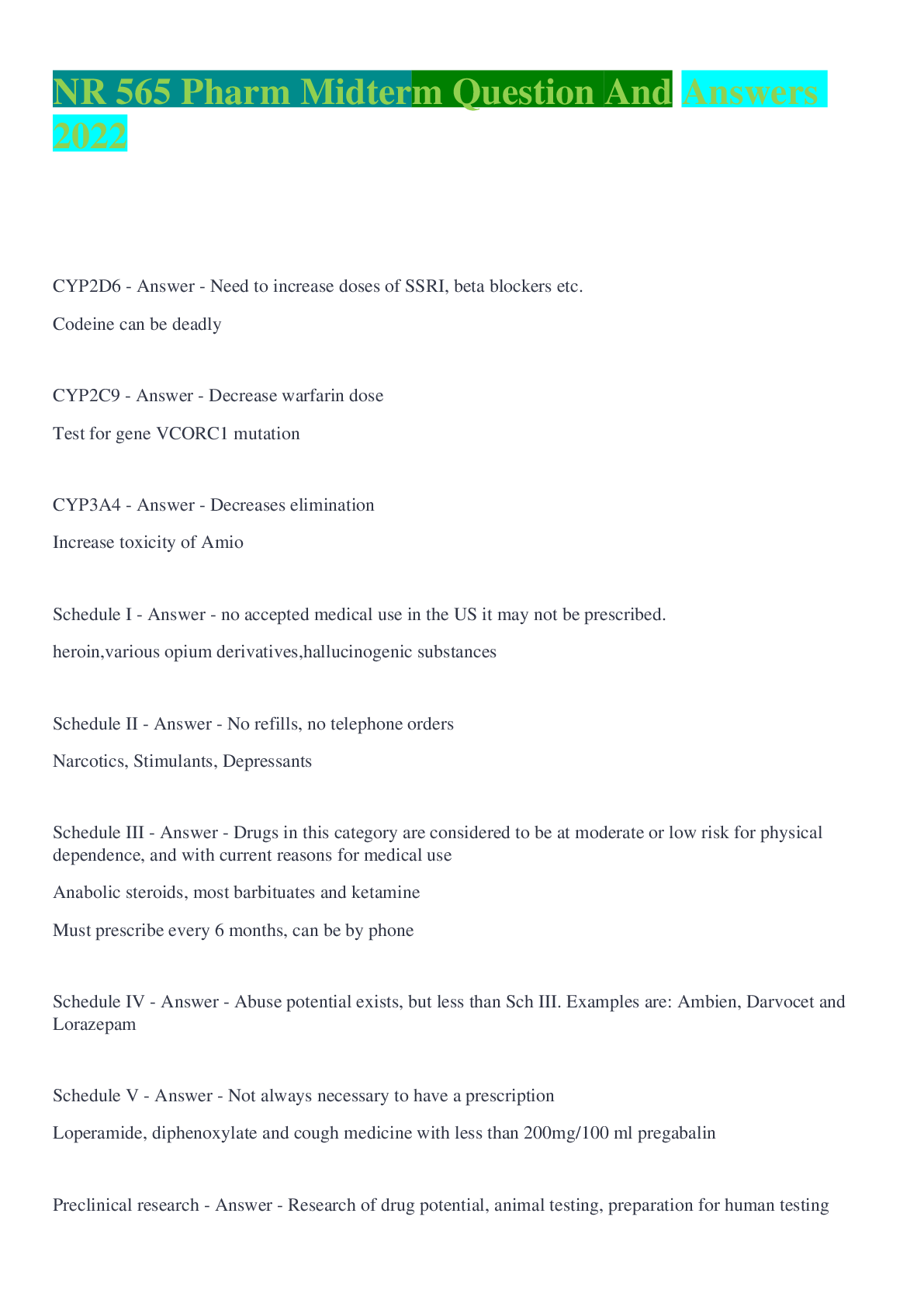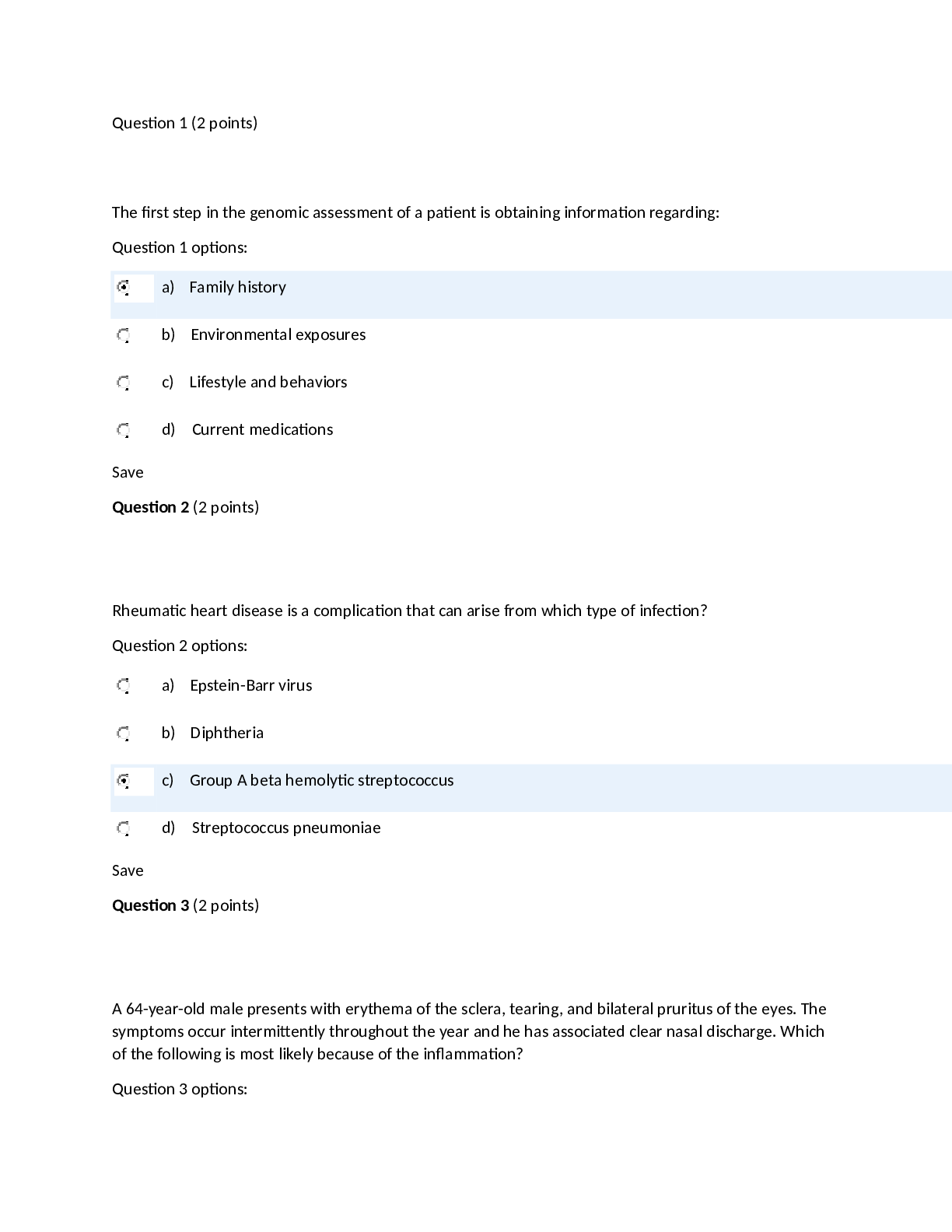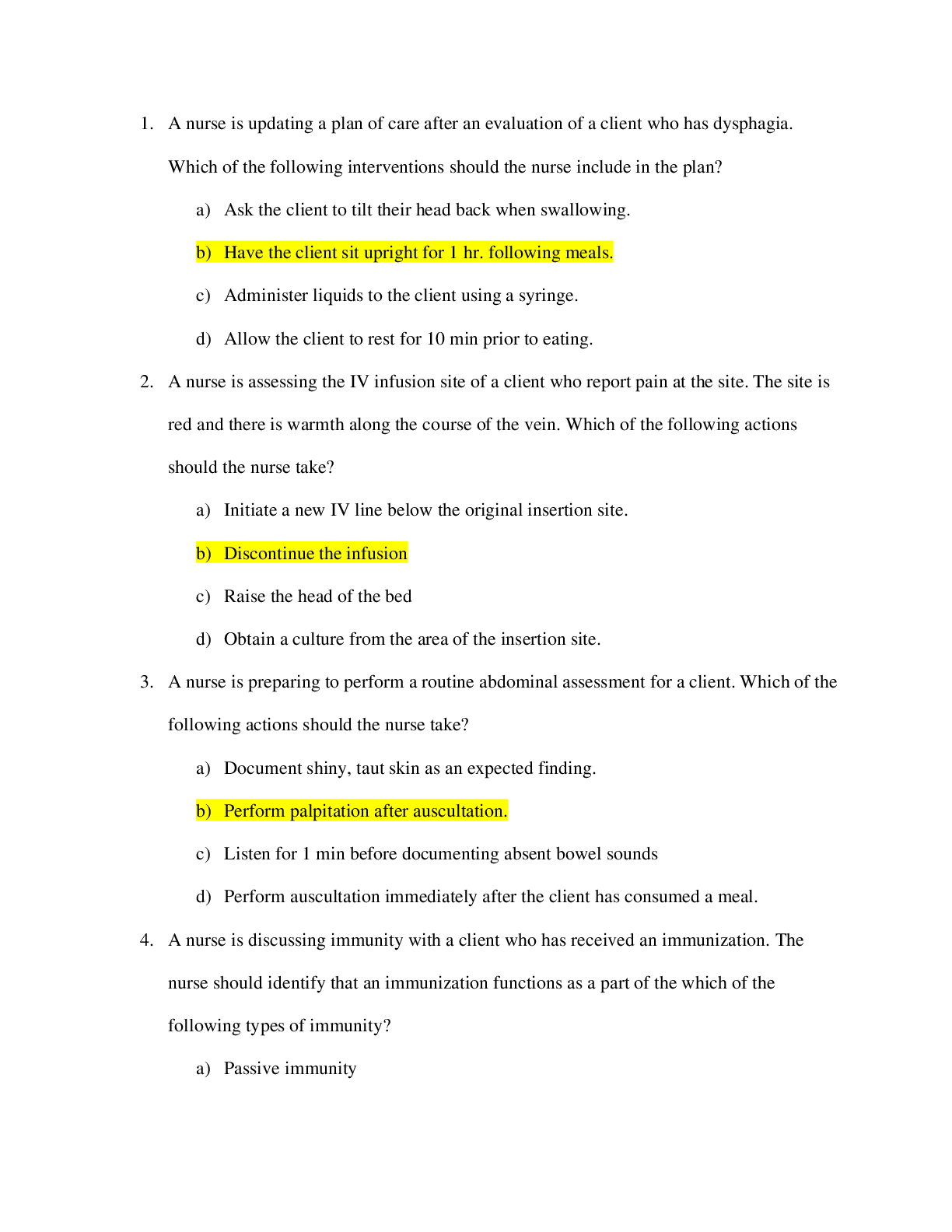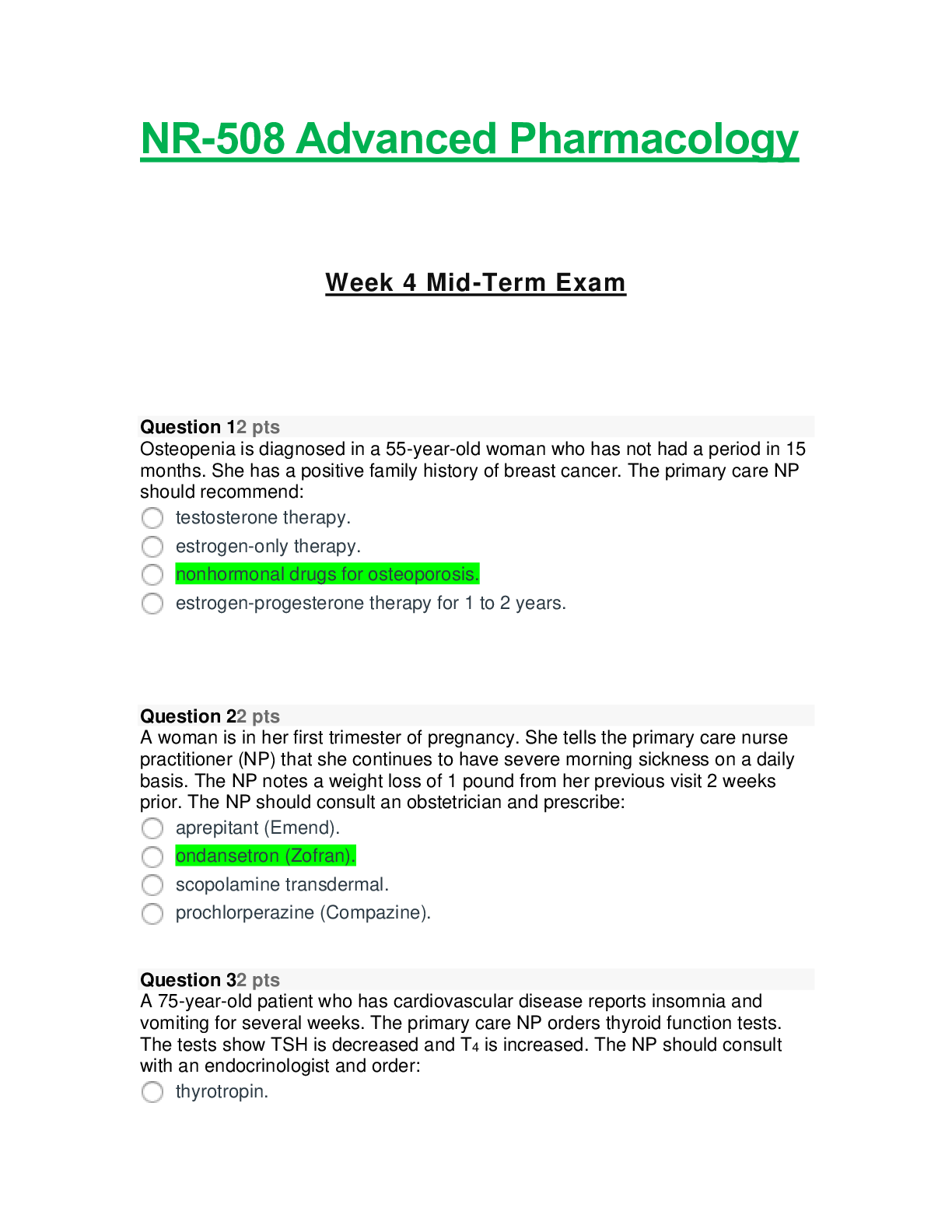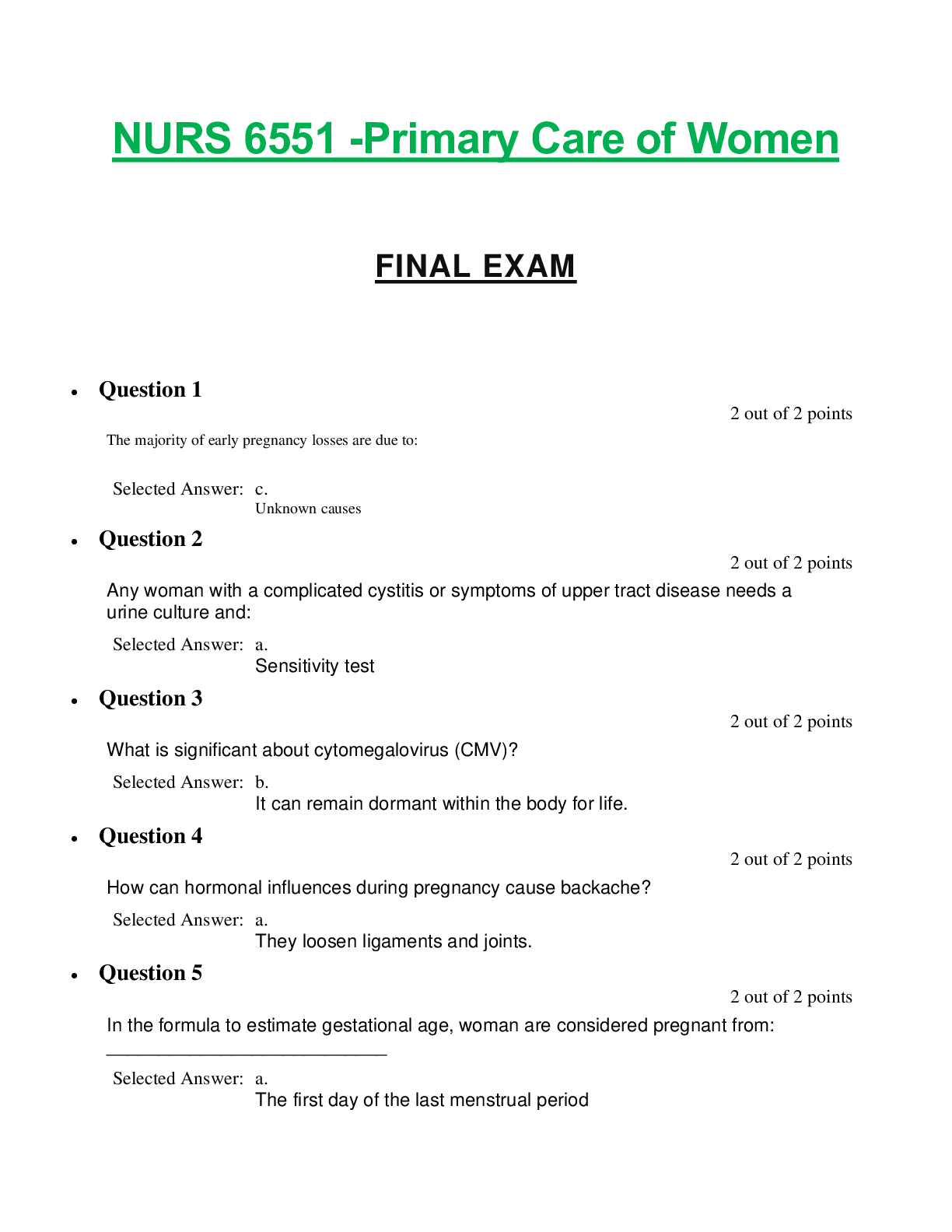*NURSING > EXAM > NURS 6660 Midterm Exam II -Walden University - Question and Answers - Latest(2020) - Already Graded (All)
NURS 6660 Midterm Exam II -Walden University - Question and Answers - Latest(2020) - Already Graded
Document Content and Description Below
Marie is a 30-year-old woman who presents for follow-up after starting treatment for bipolar disorder. She had been treated on and off for depression for years and had a history of alcohol abuse. Afte... r her marriage, she decided to stop drinking and was successful in eliminating alcohol from her life; unfortunately, she then went on to have a manic episode and was finally started on a mood stabilizer 1 month ago. She tolerated medication very well, and within 2 weeks symptoms were much improved. Now, 4 weeks later, she feels much better and wants to come off medication. The PMHNP tells her that: Anthony is a 41-year-old male patient who presents for evaluation. His wife made the appointment because she is worried about him and he would not seek care on his own. Anthony has become progressively withdrawn over the last few months and is in danger of losing his job because he misses so many days. He has been evaluated by his primary care provider and has no apparent medical conditions. His wife reports that he has been diagnosed with depression in the past, and has even taken medication that seemed to help. This time he just refused to pursue care. After a comprehensive assessment, the PMHNP diagnoses the patient with major depressive episode with psychotic features. Consistent with the Texas Algorithm Medication Project (TAMP), the appropriate choice of initial medication therapy would be: Margo is a 47-year-old female who admits to a history of fairly heavy alcohol use over many years. She admits that she has had periods in the past where she stopped drinking for a brief time, but she has always gone back to it. At this point she says she has been drinking a fifth of bourbon every 2–3 days for over a year. She has a new boyfriend and really wants to stop drinking, but she is afraid she will ―go into the DTs.‖ She has been reading about it on the Internet, and she knows it can be fatal. Other than her drinking, Margo is amazingly healthy. She had a complete physical exam with blood work through her primary doctor, and he says that her drinking does not appear to have affected her physical health at all. While counseling Margo about alcohol withdrawal delirium (delirium tremens), the PMHNP advises Margo that: Danielle is a 31-year-old female who is having a psychiatric evaluation at the insistence of her husband. They have been married for 4 years, and her husband has finally become so frustrated by her jealous behavior that he threatened to leave her if she didn’t ―get help.‖ Her husband insists that he has never been unfaithful, but Danielle repeatedly accuses him of having an affair. If he is even a few minutes late getting home from work, she demands an explanation and then does not believe anything he says. She does not have any real friends—her sister is her closest social contact, but Danielle has been angry with her for several weeks and won’t answer phone calls. Reportedly she does this often, and according to her husband can ―hold a grudge forever. During the interview, Danielle is calm, responsive, but distant. She says she really doesn’t understand why she is there—there is not a problem. The PMHNP considers the most likely diagnosis and discusses with Danielle that the treatment of choice is: Jeffrey T. is a 27-year-old man who has presented for care after being required to do so by the county court. He was involved in a car accident, and while he was not at fault for the accident, routine blood alcohol screening revealed that he was driving while intoxicated. He is a bit resentful at being required to attend therapy; he is very vocal that his driving was not impaired and that he is able to function normally even after drinking what others might consider excess amounts of alcohol. His wife confirms this; they both admit that what began as one or two beers after work a few years ago has evolved to where he now drinks at least a 12 pack of beer nightly. Regardless, they both confirm that he never ―seems drunk, ‖ and this does not interfere with his job or fulfilling his family functions. Jeffrey’s ability to function normally despite high blood alcohol is likely a result of: [Show More]
Last updated: 1 year ago
Preview 1 out of 34 pages

Reviews( 0 )
Document information
Connected school, study & course
About the document
Uploaded On
Jul 04, 2022
Number of pages
34
Written in
Additional information
This document has been written for:
Uploaded
Jul 04, 2022
Downloads
0
Views
36

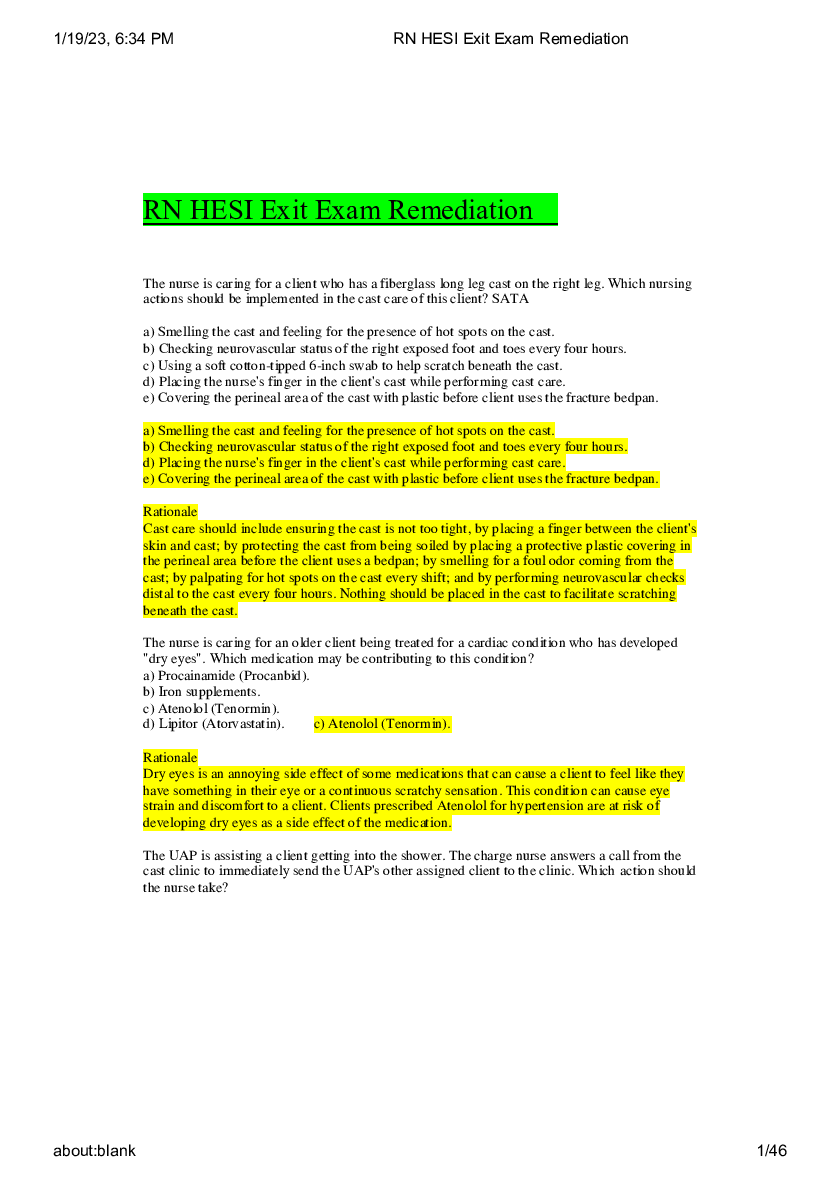
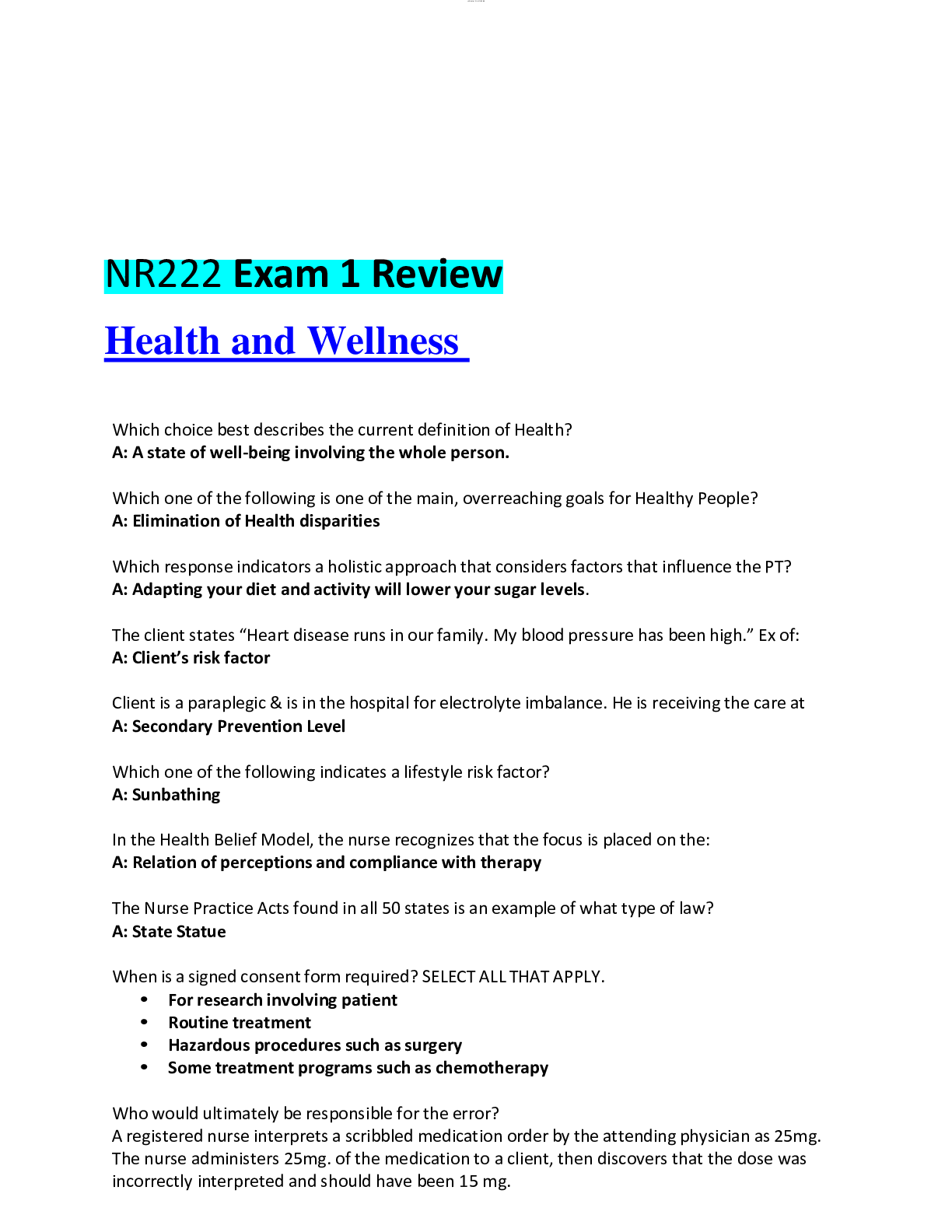
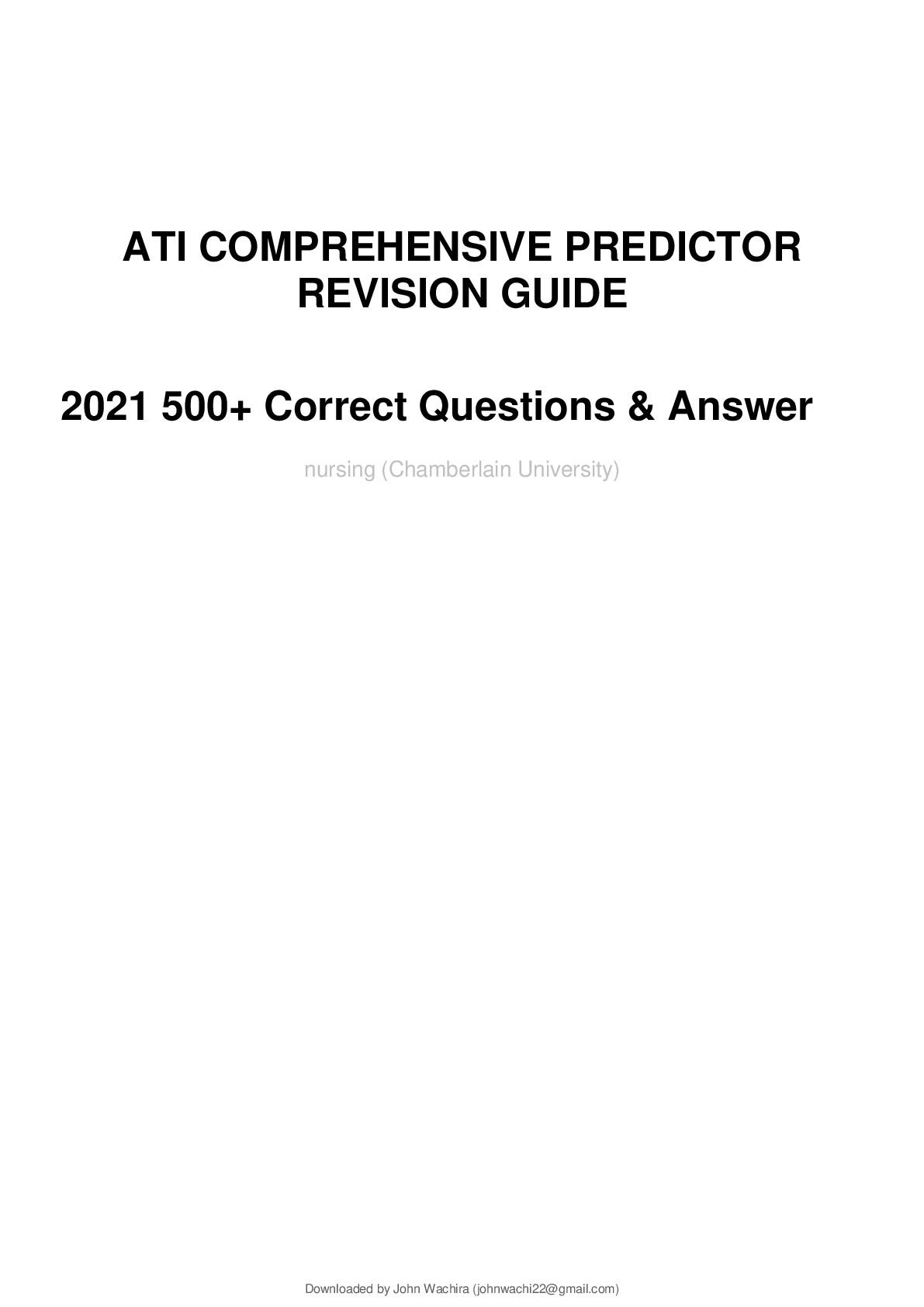
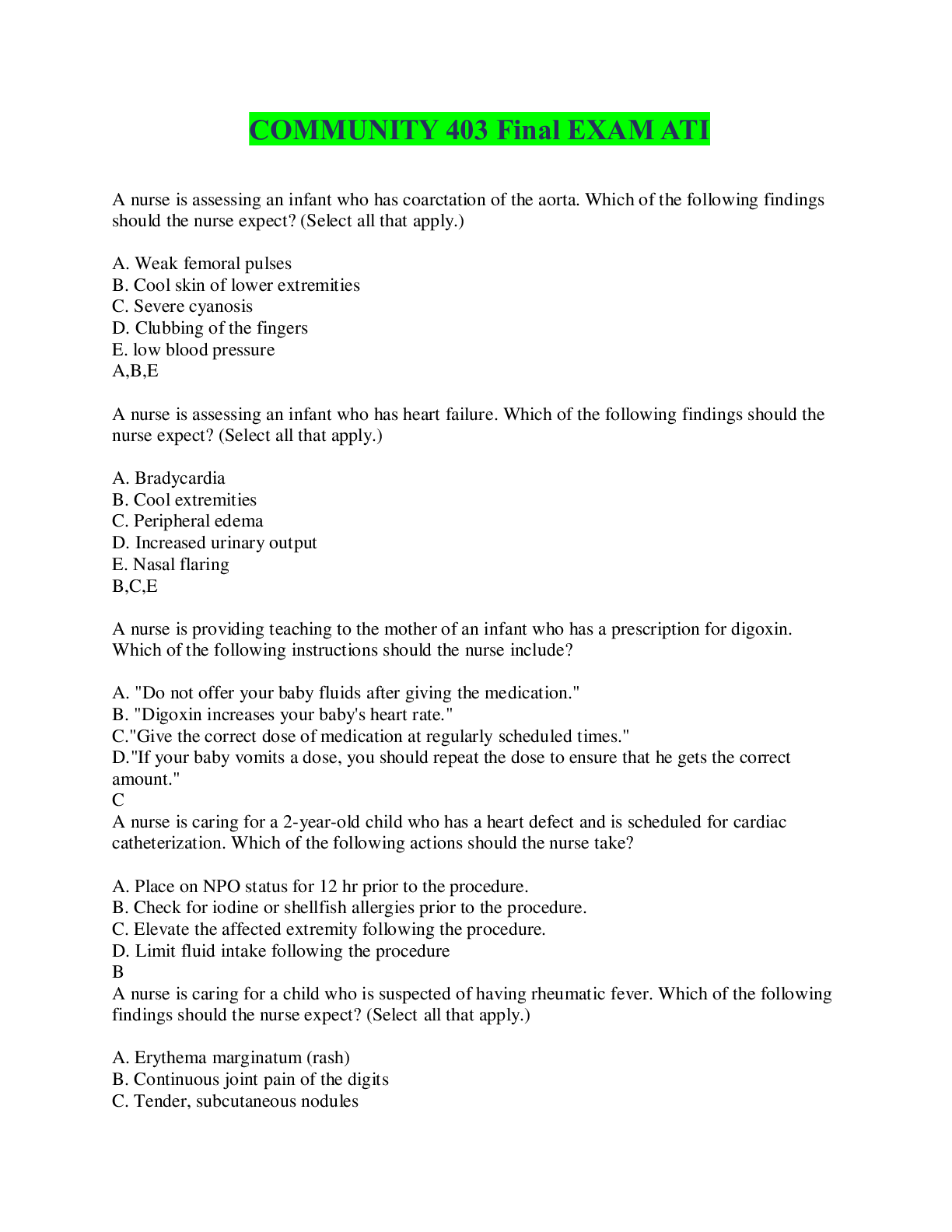

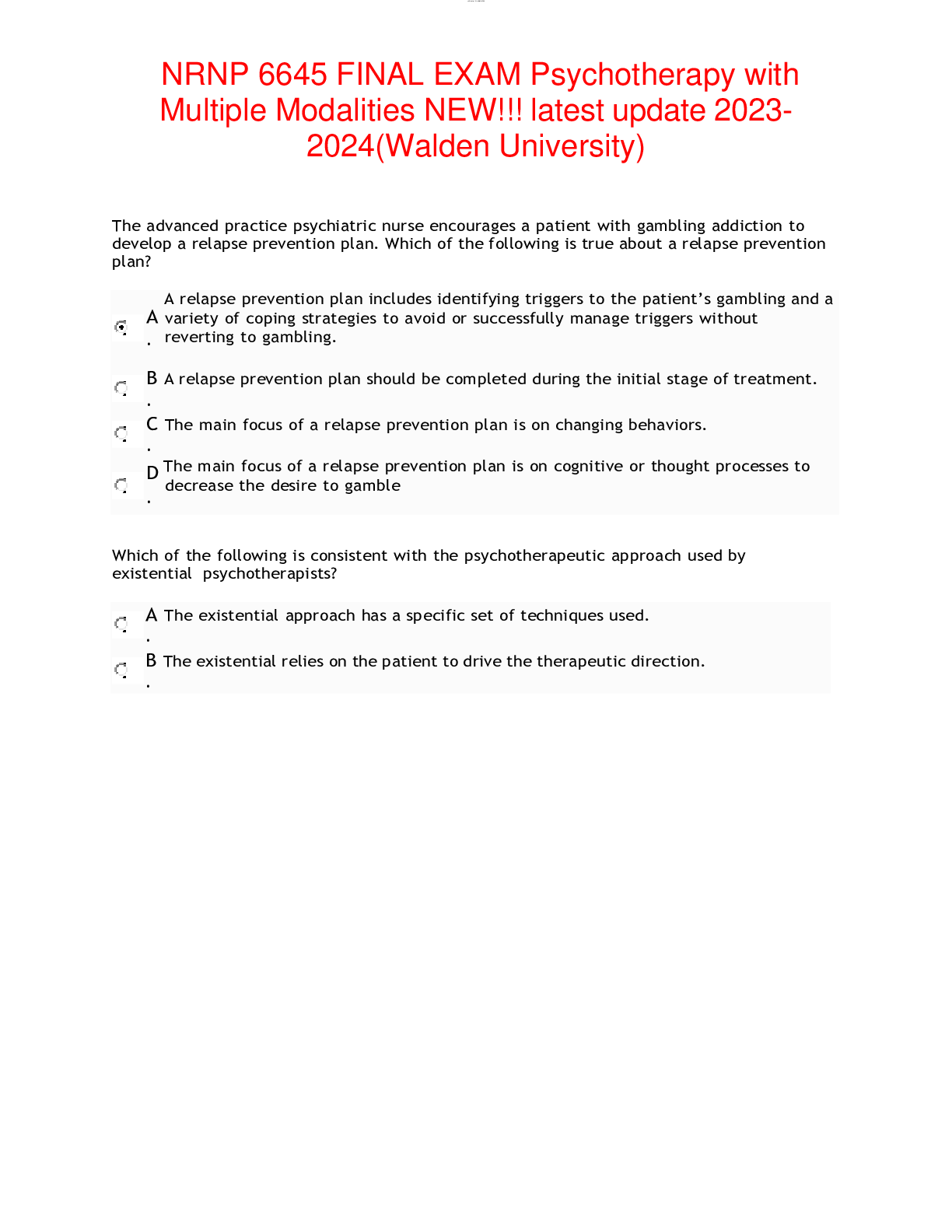

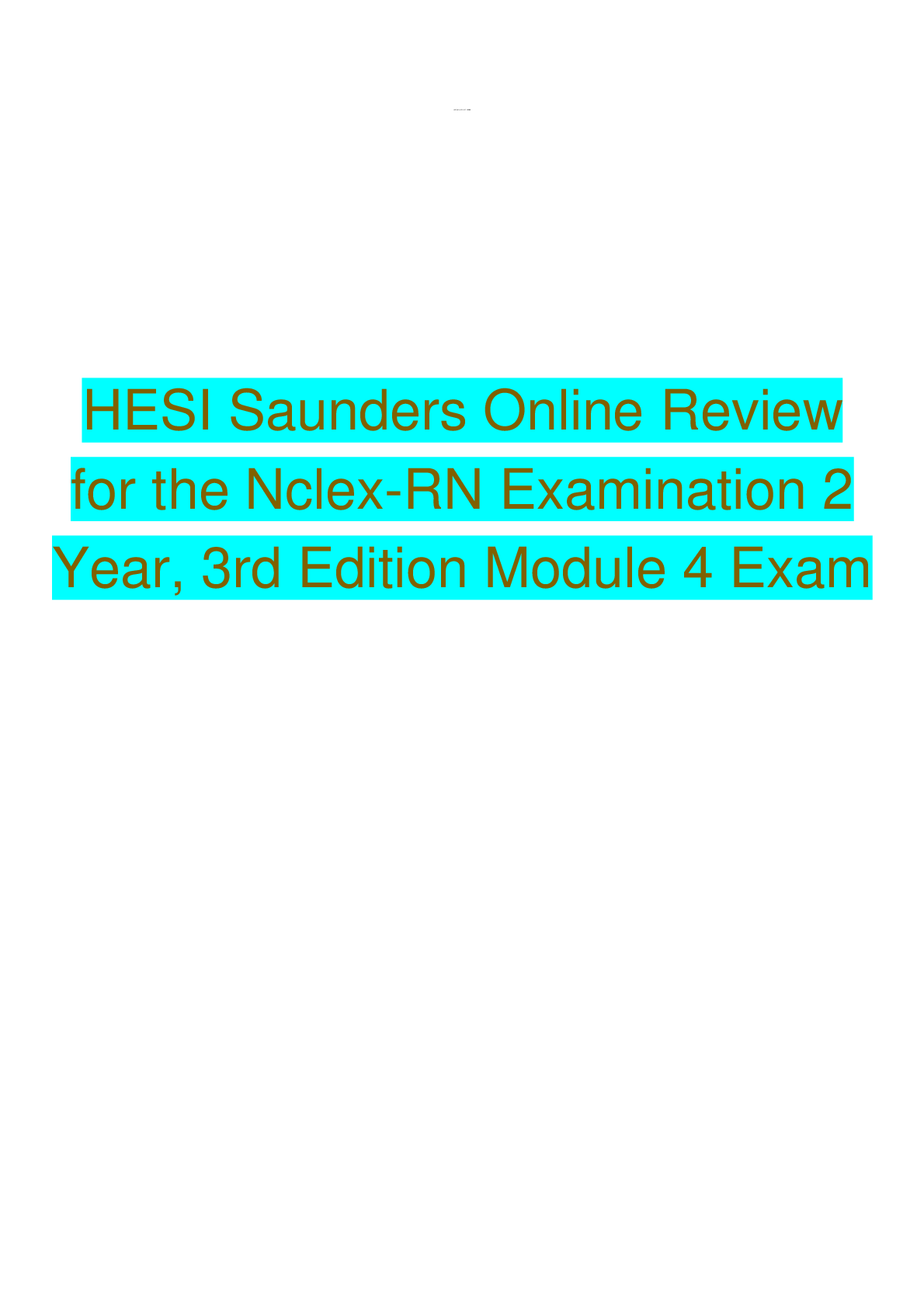
.png)
.png)
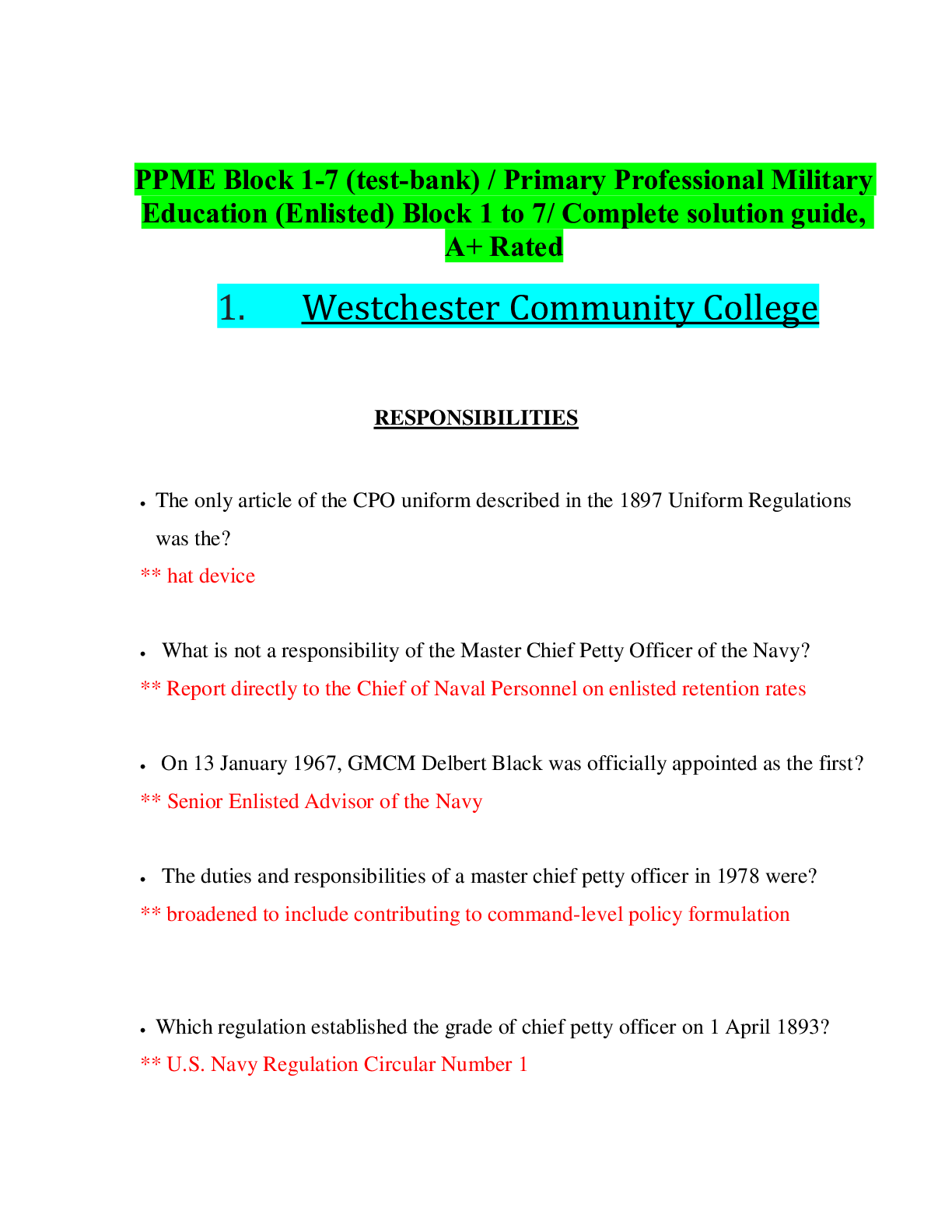
.png)
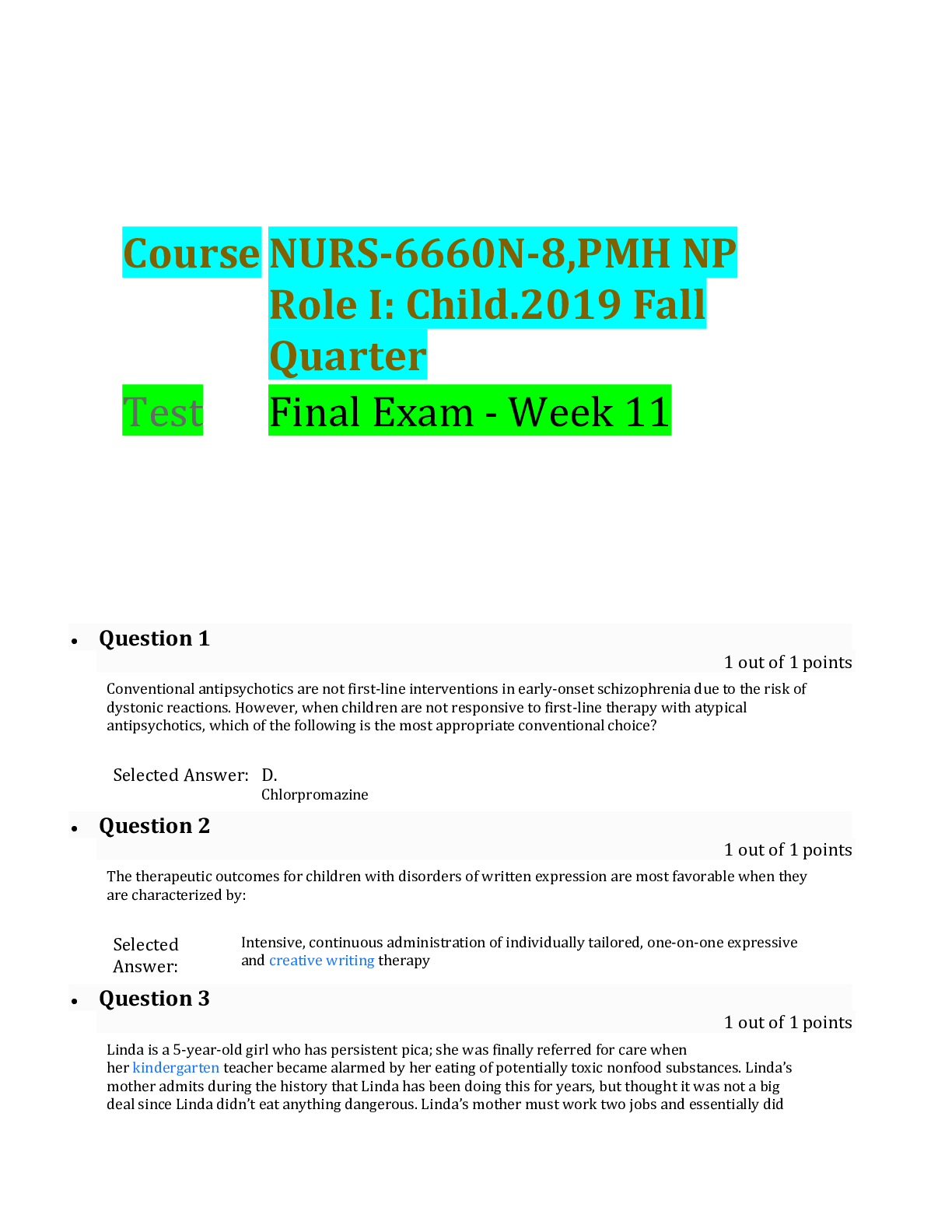
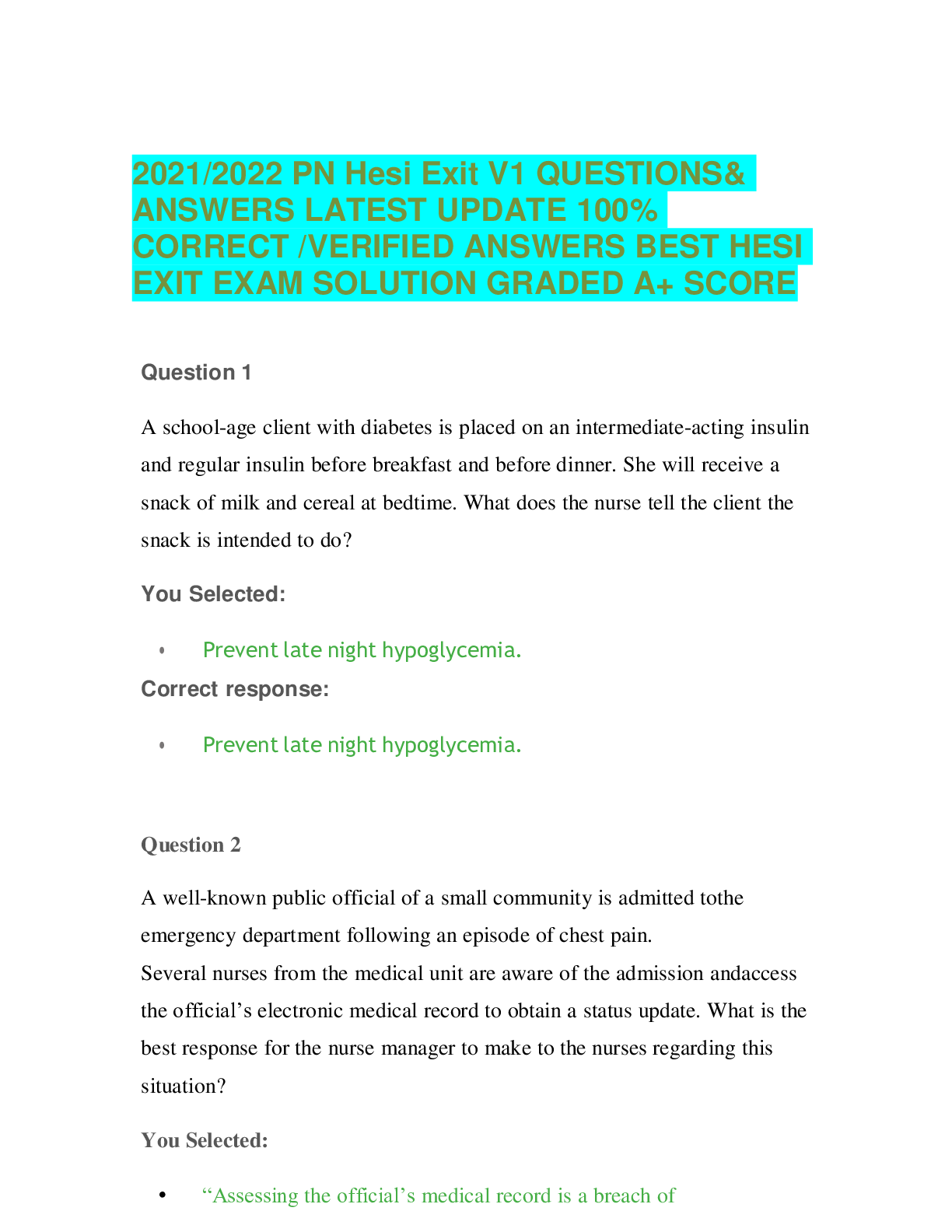
.png)
